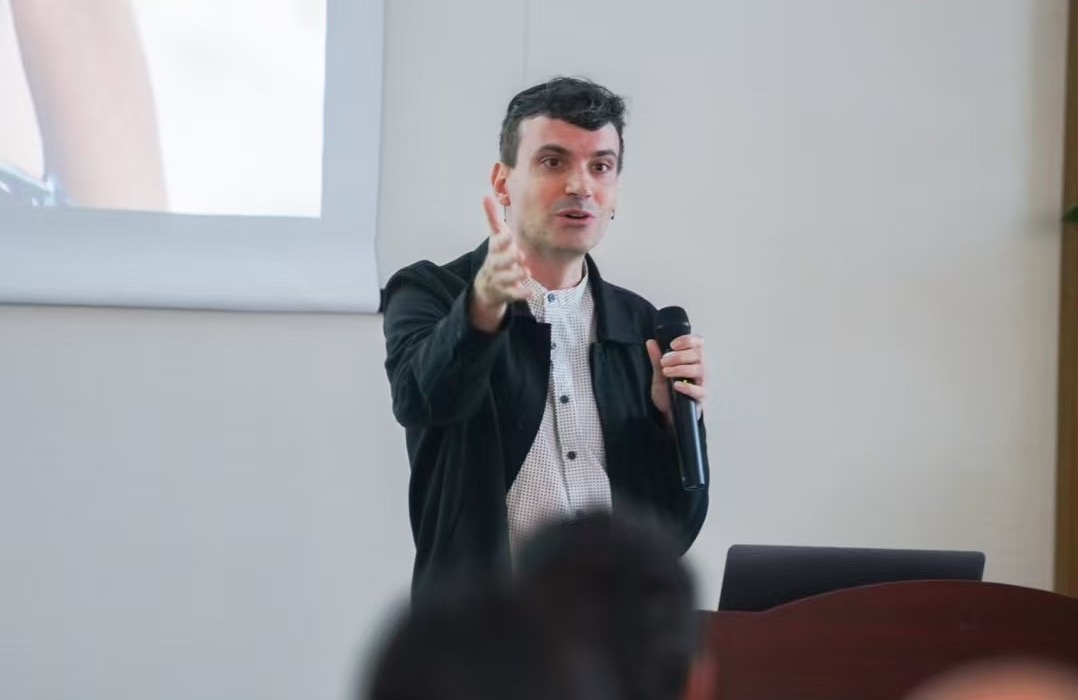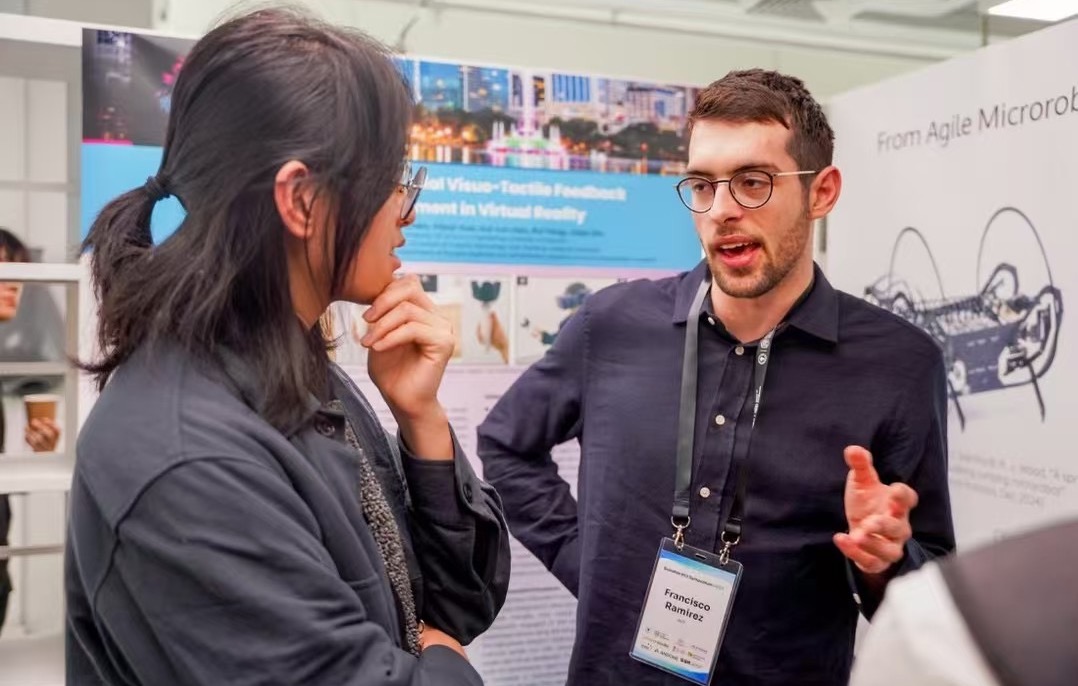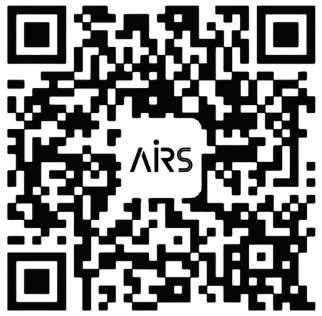「2025 MIT International SciArt Residency and Symposium」
10 PhD Researchers from MIT Media Lab × 50+ Global Innovators Gather in Shenzhen

「Project Introduction」
In January 2025, ten MIT Media Lab PhD researchers will arrive in Shenzhen to unfold a month-long residency week-long symposium, starting a journey of research, creation and exchanges in the direction of science and art.
The International Tech-Art Residency and Symposium is co-hosted by the Shenzhen Institute of Artificial Intelligence and Robotics for Society (AIRS), the SciArt Co-Lab, and the School of Design, Southern University of Science and Technology (SUSTech).
During the residency, the 10 MIT Media Lab researchers will engage in interdisciplinary research and creative practices, spanning fields such as electronic engineering, computer science, human-computer interaction, mechanical engineering, electronic tattoos, textile materials, experimental music, physical technologies, sustainability, etc.
Additionally, 50+ innovators from over 20 world-renowned institutions—including MIT, Harvard, Carnegie Mellon, Brown, Stanford, New York University, the University of Chicago, Pratt Institute, Northeastern University, DePaul University, the University of Tokyo, KAIST, Kyung Hee University, The Chinese University of Hong Kong, Shenzhen, SUSTech, UC3M, France’s Institute for Future Technologies, Learning Planet Institute, and Germany’s Max-Planck Institute—will gather in Shenzhen for an international exchange of ideas. This event bridges disciplines across science, art, design, and engineering while connecting creative ecosystems from the US, UK, France, Germany, Spain, China, Korea, and Japan.
The International Tech-Art Residency and Symposium is co-hosted by the Shenzhen Institute of Artificial Intelligence and Robotics for Society (AIRS), the SciArt Co-Lab, and the School of Design, Southern University of Science and Technology (SUSTech).
During the residency, the 10 MIT Media Lab researchers will engage in interdisciplinary research and creative practices, spanning fields such as electronic engineering, computer science, human-computer interaction, mechanical engineering, electronic tattoos, textile materials, experimental music, physical technologies, sustainability, etc.
Additionally, 50+ innovators from over 20 world-renowned institutions—including MIT, Harvard, Carnegie Mellon, Brown, Stanford, New York University, the University of Chicago, Pratt Institute, Northeastern University, DePaul University, the University of Tokyo, KAIST, Kyung Hee University, The Chinese University of Hong Kong, Shenzhen, SUSTech, UC3M, France’s Institute for Future Technologies, Learning Planet Institute, and Germany’s Max-Planck Institute—will gather in Shenzhen for an international exchange of ideas. This event bridges disciplines across science, art, design, and engineering while connecting creative ecosystems from the US, UK, France, Germany, Spain, China, Korea, and Japan.
「Keynote Guest Speakers」
Pedro Lopes
Pedro Lopes is an Associate Professor of Computer Science at the University of Chicago, specializing in integrating user interfaces directly with the human body. His research explores interface paradigms that go beyond traditional wearables. His innovations include muscle-stimulation wearables that enable users to operate unfamiliar tools or enhance reaction speed, and olfactory-based devices that create thermal illusions through scent.His research areas include Human-Computer Interaction (HCI), Virtual and Augmented Reality, and Wearable Computing.
David Ramsay
David Ramsay is an Assistant Professor at the School of Computing at DePaul University. He earned his Ph.D. in 2023 from the Responsive Environments Group at the MIT Media Lab. His research explores how the design of ubiquitous tools can shape human cognition, with a particular focus on everyday attention patterns.David combines high-quality hardware systems with cutting-edge statistical modelling to measure, understand, and enhance human experiences.
His research areas include Human-Computer Interaction (HCI), the sociological dimensions of computing, and next-generation sensing systems.
Pedro de Oliveira
Pedro de Oliveira is an Assistant Arts Professor at New York University’s Interactive Telecommunications Program (ITP) and the Interactive Media Arts (IMA) Department.He is a Brazilian artist, researcher, and educator whose practice navigates the chaotic intersections of the digital and physical. His work focuses on the social and political challenges of designing and coexisting with emerging technologies, and has been widely exhibited internationally.
Eric Pan
Eric Pan is a veteran maker and the founder of Seeed Studio, Chaihuo Makerspace, and the Maker Faire Shenzhen, part of the Greater Bay Area International Maker Summit.
Under his leadership, Chaihuo Makerspace has become a global hub for hardware innovators based in Shenzhen. In 2013, he was named one of Forbes China’s “30 Under 30” Entrepreneurs.



「MIT Media Lab Resident」
- Alan Han – Graduate student at MIT’s Center for Bits and Atoms (CBA), focusing on discrete assembly in the micro- and nanoscale domain.
- Andy Kong – Researcher at the MIT Media Lab.
Keywords: Human augmentation, computational photography, personal informatics.
- Francisco Ramirez – Ph.D. student at MIT, researching micro-robot locomotion with applications in developing self-replicating robots.
- Jason Hou – Ph.D. student at the MIT Media Lab.
Keywords: Electronic design, materials, neural and soft-tissue interface devices.
- Lingdong Huang – Ph.D. student in the Future Sketches group at the MIT Media Lab. Specializes in high-performance software development for art, multimedia, research, and entertainment.
- Patrick Chwalek – Ph.D. student in the Responsive Environments group at the MIT Media Lab.
Explores in-body and near-body animal monitoring, machine learning models, edge computing, human and animal physiology sensing, and wildfire detection systems.
- Thomas Sanchez – Ph.D. student at the MIT Media Lab.
Keywords: Urban science, music, human color perception.
- Vineet Padia – Ph.D. student in Mechanical Engineering at MIT.
Keywords: Microfluidics, soft robotics, MEMS, precision mechanical design.
- Yuhan Wang – Research Assistant at the MIT Media Lab, exploring future architectural forms and living environments through tangible interfaces embedded in architectural or building-scale contexts.
- Cedric Honnet – Ph.D. student at the MIT Media Lab.
Keywords: Human-Computer Interaction (HCI), embedded systems, human augmentation, wearable technologies.





